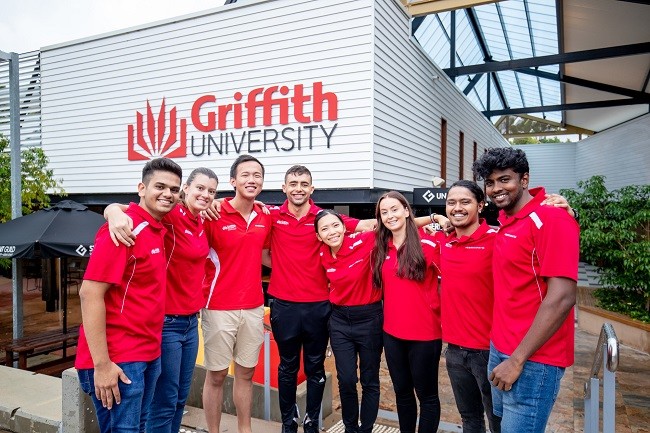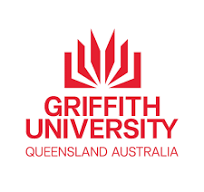
BACHELORS OF ENGINEERING (HONOURS) / ENVIRONMENTAL SCIENCE


Overview
5 YEARS
YES
AU $40,500 PER YEAR
FEB, JULY, NOV
Overview
> With this double degree, you can tackle environmental issues with knowledge across both engineering and science. With specialist skills in the social, applied and natural sciences, you'll be well prepared to find solutions to pressing environmental issues.
> With a strong practical focus, you'll develop skills in the planning, design, management, construction and maintenance of engineering projects as well as a solid foundation in biological, physical and social sciences and critical analysis.
> This is your opportunity to make a real difference to the big environmental issues facing the planet, bringing a fresh perspective and proven skills to the challenges ahead.
Industry and expert connections
> From year one, you'll be learning from industry experts and like-minded teachers. Hands-on experience is key to this double degree, and in your final year you can enhance your knowledge through an industry-based project or placement.
Graduate outcomes
> You'll have several options available when you graduate as either an engineer or an environmental scientist. This degree could lead to a career in civil, environmental, mechanical or electrical engineering. Your environmental science degree will offer up rewarding careers such as an environmental officer, environmental consultant, wildlife biologist, conservation ecologist or environmental chemist.
Majors
Changes effective for students commencing from Trimester 2 2020 onwards:
Engineering
*Civil Engineering
*Electronic Engineering
*Environmental Engineering
*Mechanical Engineering
Environmental Science
*Ecology and Conservation
*Environmental Management
*Soil and Water Science
* Urban Environments
Flexibility
Tailor your timetable - Even if you study full-time on-campus, you may still be able to customise your degree to suit your needs. From a range of tutorial times to online access to lectures and other course material, we're here to help you fit study in with your work and life commitments.
Global mobility
> Students may be eligible to do an international field trip, organised by the academic staff. This may count towards a component of the degree. Visit Go Global Griffith for more information.
Program accreditation
> In Australia, professional accreditation of entry to practice engineering programs is the responsibility of Engineers Australia and is normally carried out on a five-yearly cycle. Griffith University underwent this review in August 2015.
> Accreditation ensures academic institutions consistently meet national and international benchmarks and engineering graduates of an accredited program are assured membership with Engineers Australia at the relevant career grade and enjoy reciprocal privileges by equivalent professional bodies overseas.
> Countries such as the United States of America, United Kingdom, Hong Kong (SAR), New Zealand, Canada, South Africa and others that are co-signatories to international agreements on joint recognition offer international recognition.
> The Washington Accord, the Sydney Accord and the Dublin Accord recognise the substantial equivalence of accreditation systems and accredited programs across international boundaries at the Professional Engineer, Engineering Technologist and Engineering Associate levels respectively. Please refer to the International Engineering Alliance (IEA) website for more details.Please see the Engineers Australia website for the most recent list of accredited programs.
Attendance information
> This program is offered full-time on-campus.
> This program includes compulsory study in Trimester 3. Students who commence in Trimester 2 should note that you will be required to study in Trimester 3 for the first year of the program.
> If you are an International student on a student visa, you must ensure that you enrol in a way that will allow you to complete your enrolment within the expected program duration as stated on your Confirmation of Enrolment (CoE).
My career opportunities
Key employment sectors*
*Environmental science
*Engineering
*Conservation
*Manufacturing
*Government
Potential job outcomes
*Civil engineer
*Environmental engineer
*Environmental officer
*Wildlife biologist
*Conservation ecologist
*Environmental chemist
Inquire Now
Entry Requirements
> Qualification: School Leaving Certificate Examination awarded by National Examinations Board
> Your entry requirements include: Grade average of 3.9 in the final year results
> Qualification: Nepalese Proficiency Certificate
> Your entry requirements include: Grade average of 97 in the final year results
> English language requirements apply to International applicants and other applicants whose previous study was undertaken in a language other than English. The minimum English language requirements for such applicants for entry to this program are as follows:
> A minimum overall band score of 6.5 on IELTS (Academic) with no sub-score of less than 6.0
> OR a minimum score of 575 on TOEFL
> OR an internet-based (iBT) TOEFL score of 79 (no sub-score less than 19)
> OR no score less than 3+ in each skill of the ISLPR (conducted by ISLPR Language Services only)
> OR a minimum overall score of 176 (no score less than 169) on C1 Advanced (formerly Cambridge Certificate in Advanced English) or C2 Proficiency (formerly Cambridge Certificate of Proficiency in English)
> OR an overall score of 58 in the Pearson Test of English (Academic) with no score less than 50.
Fees
Tuition fees
> An International student pays tuition fees.
> Students are liable for tuition fees for the courses they are enrolled in as at the census date.
> The tuition fee for students who commence their program prior to 2014 is charged according to the approved program fee for the trimester in which the student commenced the program.
> FEE (INDICATIVE): $40,500 per year
Scholarships
> file:///C:/Users/LANDMASRK%20EDUCATION/Documents/Scholarships%20and%20finance%20Griffith%20UNI.html
Popular Courses
Find your perfect course
Head Office
Kamaladi, Kathmandu
Tel: +977 14542781, 9845566225
E-mail: info@landmarkedu.com
Sydney office
Rockdale, NSW 2216,
Tel: +61 415 122 814
Branch office
Tel: 056-590825
Tel: 021-590828
Tel: 977-71-591694



